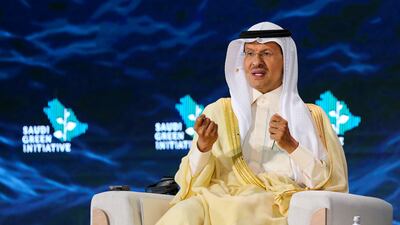Saudi Arabia, the world's largest exporter of crude, will back a $2 billion programme to provide clean cooking fuel to nearly 750 million people, following its pledge to reach net zero by 2060.
"This is like a micro-financing scheme where these pledges can come in and other lending agencies and institutions can come," Prince Abdulaziz bin Salman, the kingdom's Minister of Energy, told the Future Investment Initiative in Riyadh.
"It would help in mitigating a serious health issue for those people in terms of emission reduction."
Earlier this week, Saudi Arabia's Crown Prince Mohammed bin Salman announced the establishment of a $10.4bn investment fund focused on the circular carbon economy, to which the kingdom will contribute 15 per cent. Circular carbon economy refers to managing and reducing emissions based on four principles: reduce, reuse, recycle and remove.
Providing access to clean cooking fuel is part of the fund proposed by Prince Mohammed.
About 2.6 billion people across the world do not have access to clean cooking fuel. The situation remains dire in places such as sub-Saharan Africa, where 17 per cent of the population does not have access to clean cooking fuel. The Covid-19 pandemic has only widened the gap in access to less-polluting forms of fuel, according to the International Energy Agency.
Prince Abdulaziz also spoke out against the global inequality in offsetting emissions.
"You are going to be asking developing countries to pay for the carbon footprint for someone else who had been [emitting for] 200 years, building up all those stacks and stacks of carbon. And I just wonder how this could happen at the cost of a very poor country that is just about to evolve in terms of development," he said.
In addition to its pledge to reach net zero by 2060, Saudi Arabia also plans to more than double its target of reducing annual carbon emissions to 278 million tonnes by 2030. This is up from a previous target of 130m tonnes.
The kingdom's pledge to reach net-zero by 2060 only covers its domestic emissions and does not extend to carbon dioxide released from use of its crude products across the world.


